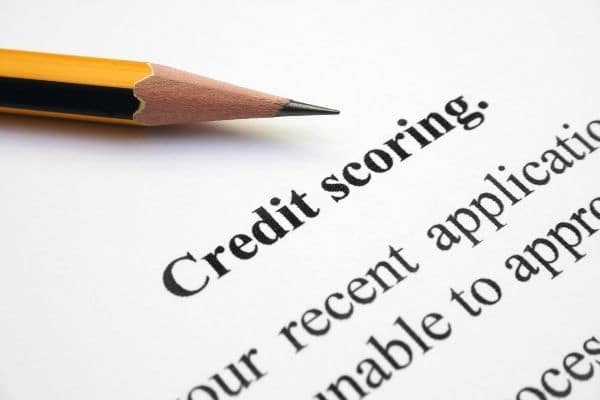
26 May 5 Things That People With An Excellent Credit Score Do
When it comes to financial advice, there are a few basic rules that are worth following. Pay off your debt on time. Don’t spend more than you can afford to repay. And set aside some savings for an emergency fund. But there’s another piece of financial wisdom that’s just as important: maintain an excellent credit score. That’s because an excellent credit score can help unlock benefits like lower interest rates, and provide access to credit with more favourable terms. Read on to find out the 5 things that people with an excellent credit score do.
1. Pay bills on time
Credit scores are calculated using spending and repayment history. It’s a ranking that indicates to lenders how likely you are to repay your debts based on past financial transactions. Credit scores help lenders determine whether or not to approve your loan application or line of credit, and how much interest you’ll be charged.
If your credit score is high, getting your finance approved will likely prove easier, while a low credit score could mean your credit application is declined or you’re charged a higher interest rate to cover the lender from any perceived risk.
Late payments or missed repayments quickly dent credit scores, making it harder to get approval for credit. The good news is, there are some easy ways to boost your credit score. One of these is simply paying your bills on time each month – repay loans and credit cards in full, and avoid missing payments on utility bills too. By doing this, you’ll build up a history of good repayments and your credit score will actually improve over time. To help you keep finances on track and take the hassle out of remembering when your regular bills are due, such as power, gas and phone bills, you can set up automatic payments. What’s more, putting your recurring payments on autopilot can also help free up some time so you can focus on managing other aspects of your financial life!
2. Fix errors immediately
From time to time, errors crop up on credit reports. A mistaken account that you never opened. A credit enquiry that you didn’t approve. Or a late repayment notice for a bill you’ve repaid on time. Errors like these negatively impact a credit score.
Regularly requesting and checking your credit report is a good way to ensure that any errors are quickly identified and fixed. If you uncover an error in your credit report, simply get in touch with the credit reporting company that provided the report to dispute the error, and they’re obligated to investigate the issue and report back to you. Often, simply fixing the errors will improve your credit score.
3. Use credit wisely
Another important factor in maintaining an excellent credit score, is not taking on more debt than you can afford to pay back. Credit cards that are maxed out to their credit limit. Multiple loans in a short space of time. All of these signal to lenders that you’re over-committed and potentially a financial risk. That could impact any future credit applications you might need to make.
A good way to take charge of your finances is to track your spending against your monthly budget. And if you’re already maxed out with several credit cards and personal loans, consolidating all of your debt into one easy-to-manage loan could be a solution. That way you’ll only be charged one repayment amount, and in most cases, the interest rate on a debt consolidation loan is far more preferable when compared to a credit card.
Maxing out your credit cards is a definite no-no but having credit card accounts open and repaying your balance in full each month is a good way to repair your credit score. The key to an excellent credit score is using your credit wisely.
4. Avoid multiple credit applications
As those with an excellent credit score know, regularly using credit and repaying debt in full and on time is vital to maintaining that credit score. Applying for too much credit in a short timeframe, however, can actually damage a credit score.
Each time you apply for credit, an entry is made on your credit report. Applying for several credit cards, store cards and personal loans in a short space of time may give the wrong impression to lenders reviewing your credit report, and could even end up in your application being declined. And if your credit application does get declined, that again could negatively impact your credit score!
To avoid damaging your credit score with multiple credit applications – some of which may be declined – space out any applications you need to make and only apply for credit when you really need it. And to further improve your chances of your application being approved, have a Max Loans Personal Loans Adviser review your application and match you up with a lender that best fits your financial situation, maximising your chance of a successful approval.
5. Repay bad debts
Missed or late repayments can seriously damage your credit score, which is why it’s so important that you repay your debt on time and in full. And if you have missed a repayment and now face a default, making an arrangement to repay that debt is an important first step in recovering your credit score.
One way to do this is with bad credit loans from Max Loans. Bad credit loans are ideally suited to people who may have bad credit or defaults in the past and are now struggling to get affordable credit. Using bad credit loans to repay your outstanding debt could actually help boost your credit score back to good health.
A few steps to take to an excellent credit score
If bad credit is stopping you from applying for finance, or if you need advice about tackling bad credit with bad credit loans, get in touch with a Max Loans Adviser to provide advice. A Max Loans Adviser can provide advice about the right financial solution to fit your situation, along with guidance if you’re seeking NZ Loans or bad credit loans.
Apply Now
Find this article helpful? Don’t forget to like it or share it on Facebook.


